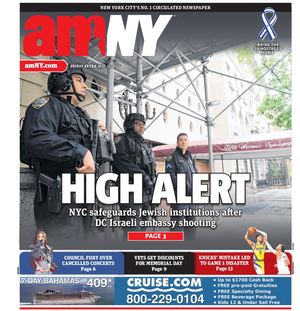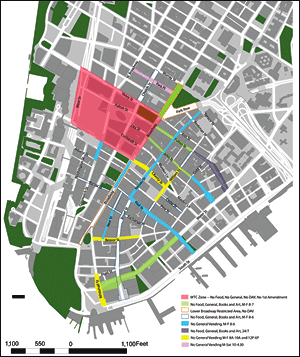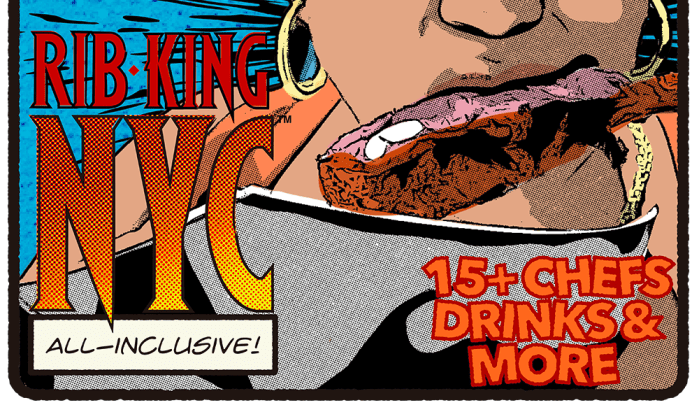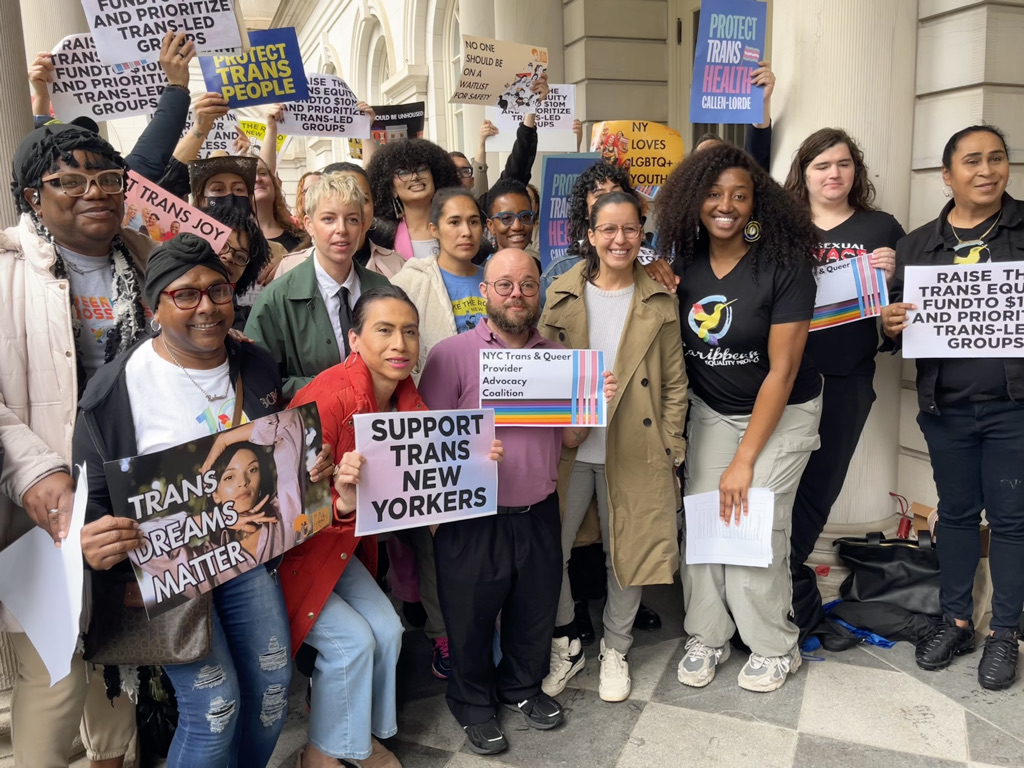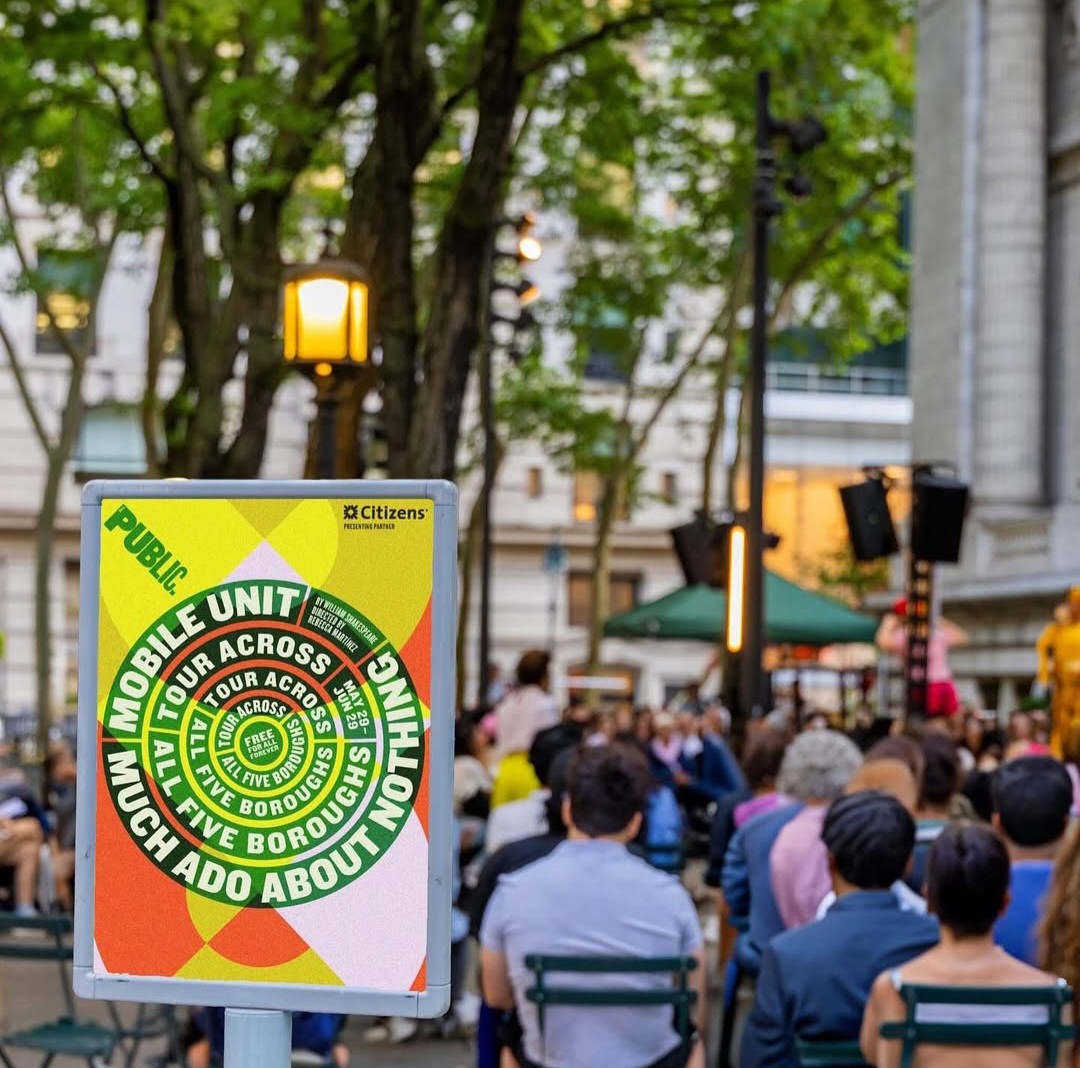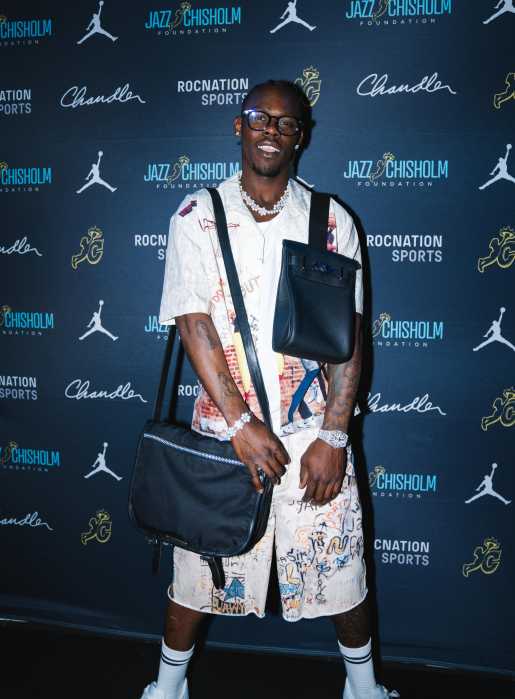By Julie Shapiro
As City Councilmember Alan Gerson’s plan to overhaul street vendor legislation inches forward, two local leaders are taking the matter into their own hands.
Borough President Scott Stringer and Liz Berger, president of the Downtown Alliance, each announced plans last week to combat illegal vending in Lower Manhattan, particularly around the World Trade Center site.
“Let’s do what we can under the existing law now,” Berger said at Community Board 1’s Quality of Life Committee meeting last Thursday. “This stuff is complicated but not impossible.”
Berger unveiled a seven-point plan that she said does not preclude a legislative solution, but she also questioned the effectiveness of some of the measures Gerson has suggested, including his lottery for contested vending slots.
Three days later, Stringer held a press conference across the street from ground zero to announce a three-point plan to regulate vending that was also independent of Gerson’s legislation. Stringer said he was not aware of Gerson’s proposals.
Both Berger and Stringer called for consistent enforcement of the laws on the books and communication among vendors, city agencies, law enforcement and the public. Stringer also wants to increase fines and track repeat offenders, while Berger also wants to create a dedicated Lower Manhattan vending taskforce along with police foot patrols.
Robert Lederman, president of ARTIST (Artists’ Response To Illegal State Tactics) and one of the most strident critics of Gerson’s legislation, usually has only harsh words for business improvement districts, but he found himself partly agreeing with Berger in this case.
“Right is right,” he said when told of Berger’s vending plan that would leave the city’s laws intact. “If it ain’t broke, don’t fix it.”
Gerson did not take Berger and Stringer’s new plans as a rejection of his legislation.
“We’re all on the same page and working together,” he said. His legislation would provide some of the measures Stringer called for, like increased signage. Gerson said he agreed with Stringer and Berger that the laws need to be enforced, but he said doing it isn’t as simple as saying it.
“There’s a reason why for over a decade, enforcement has been sporadic at best,” Gerson said. “That’s because the current laws are difficult if not impossible to enforce.”
The city’s vending codes are extremely complicated, with different sets of rules applying to different types of vendors selling different wares on different streets at different times. Gerson’s vending package consists of more than a dozen bills that seek to clarify the rules so vendors know how to stay within the law and the police know how to enforce it.
The City Council will hold its first hearing on part of Gerson’s legislation Oct. 30. The Council will hear three proposals: to increase the number of legal vendor licenses; to make it harder for vendors to set up near sidewalk obstructions; and to close a loophole that allows an unlimited number of First Amendment vendors to set up wherever a disabled veteran sets up.
The Council will not vote on the bills on Oct. 30, but Gerson said his legislation is being fast-tracked and he thinks it could be implemented before his term ends at the end of 2009.
Lederman has many objections to Gerson’s legislation, including its limits on First Amendment vendors.
“If it’s passed, we’ll be making a big lawsuit and win lot of money,” Lederman said.
Lederman also mistrusts Gerson’s proposal to increase the number of vending licenses, since Lederman said the legislation would also reduce the number of legal vending spaces. Additionally, Lederman quibbles with Gerson’s definition of a sidewalk obstruction, which includes tree roots and cellar doors.
Under the current laws, Berger and Stringer are both targeting the area around ground zero because it has the simplest rules of any part of the city: In the area bounded by Liberty St., West St., Vesey St. and Broadway, no vendors are allowed. The only possible exception is First Amendment vendors who carry the materials they distribute, as opposed to setting up a table. The State Legislature enacted this ban in 2004, and Stringer, who was then in the Assembly, said he finds it “shocking and outrageous” that people continue to vend so close to ground zero.
“Profiteers are cashing in on one of the worst tragedies,” he said. “This site should never have to become a carnival for profiteers who diminish everything this country and this city have been through.”
Vendors who spoke to Downtown Express a few weeks ago said they peddle their wares at ground zero because they can’t find anywhere else to go. They are drawn to the crowds of tourists who visit the site, and even when police arrest them or chase them away, they return day after day. Many said they have families to feed, and some said that at least selling knockoff goods was better than committing crimes like stealing or dealing drugs.
Stringer’s staff tracked the number of illegal vendors near the W.T.C. site over 11 days in September and early October. They found a maximum of 53 vendors one Saturday afternoon, while most other days they found about 10. Nearly all of the merchandise vendors were selling knockoff goods, while about two-thirds of the First Amendment vendors were selling images of the Twin Towers, according to the report.
As Berger described ways to crack down on illegal vendors at the C.B. 1 meeting last week, she pointed out a provision that bans vending wherever there are “exigent circumstances.”
Because of all the construction, “Some people might argue that all of Lower Manhattan is in an exigent circumstance,” Berger said.
Also at the C.B. 1 meeting, Jenu Brar from the District Attorney’s office presented vending statistics from the First Precinct. From July 1 to Sept. 30 of this year, officers made 92 arrests for counterfeit merchandise vending, 60 of which were on Church St. near the W.T.C. site. Of the 92 arrests, nine people received fines, 19 received community service, two received six months probation, three received jail time and one was let out of jail on time served.
One of the vendors who got jail time had been selling fake DVDs and was sentenced to 30 days at the beginning of the summer, only to be caught again in August and sentenced to 90 days, Brar said.
Betty Cohen, director of corporate relations for Century 21, said the vendors create chaos outside the entrance to the department store. Many tourists see the 9/11 memorabilia as exploitative and exchange words with the vendors that sometimes escalate into scuffles. The vendors also argue with Century’s security guards, who try to stop the vendors from blocking the entrance, and they argue with police officers, who sometimes walk away injured, Cohen said.
“Everyone is blaming the police, but they’re always responsive,” Cohen said. She thinks the Department of Consumer Affairs and the District Attorney need to be more active in going after illegal vendors and their suppliers. She likened the situation to a three-pronged outlet with only one prong, the police, going into the socket.
Stuart Yule, director of safety for the Millenium Hilton across from ground zero, said the vendors bother the guests as they come in and out of the hotel. The problem is the worst on Sundays, when fewer police are around, he said.
“It’s like a carnival,” Yule said. “It’s really not right.”
Julie@DowntownExpress.com
